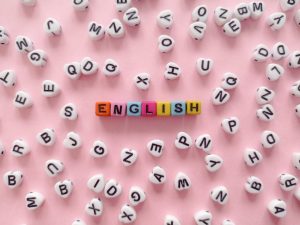If you are an IB student considering taking the Diploma Programme, you may have heard of IB English Language and Literature. This study is an essential part of the IBDP. From what I’ve seen, students who fully understand the subject’s organization and goals do better and enjoy it more. Let me discuss what I know about IBDP English Language and Literature, how this course works, and how to do well.
What Are the Objectives of English Language and Literature in IB?
In my experience, the goals of the International Baccalaureate English Language and Literature program provide the groundwork for future academic and personal achievement. This course focuses on developing critical abilities beyond reading books or analyzing marketing in a worldwide, interconnected society. Allow me to explain these goals to you in simpler terms.
One primary objective is to help students develop the skills necessary to critically evaluate a range of texts. Books, poetry, speeches, commercials, and articles are texts. In my view, this allows students to understand how IB Literature and Language reflect and change our reality.
Another important goal is teaching pupils to articulate their ideas well in written and spoken forms. To succeed in school and one’s career, one must be able to express themselves effectively, which is why this is of the utmost importance.
Core goals of the IB Language and Literature program include:
- Analyze books from different cultures and points of view to enhance your critical thinking abilities.
- Grasp the ways language functions in various settings and impacts one’s sense of self and community.
- Work on your ability to articulate ideas clearly in written and spoken forms.
- Encourage a love of reading, whether fiction or nonfiction.
- Examine world problems with literature and language.
The value of cultural understanding is also stressed in this class. Students may better understand the world from various viewpoints and experiences by reading literature from across the globe. The course’s emphasis on developing compassion and insight into the human condition is, in my view, one of its greatest strengths.
In case you were wondering, the significance of these goals extends well beyond the confines of the classroom. With their help, you’ll be ready to speak your mind and think critically about the world around you. A talent that is worth learning, isn’t it?

IB English A: Language and Literature Course Structure and Assessment
Developing analytical thinking and understanding the world around us are two goals of this course’s stimulating and participatory curriculum. This course encourages students to investigate the interplay between language, culture, and literature via its three primary foci, as outlined by the overall IB criteria:
- This section examines a culture’s cultural values and how language impacts and impacts them. Students analyze speeches, ads, and publications to learn about the power of words to express identity, social norms, and power dynamics.
- Students examine literary works from several cultures and languages, often in their translated forms. It allows them to see the similarities among cultures while valuing the subtleties that make each one special.
- Students learn to analyze and understand texts in various genres and styles in critical analysis. They analyze poems, political manifestos, and other works for structure, language, and intent.
In my opinion, prose and poetry analysis may be adequately grounded in these subjects. Deciphering a piece’s “how” and “why” is equally essential to memorizing its words in IB Languages. This in-depth examination encourages students to think critically about their environment and place.
Assessment Components for SL and HL
Exams in International Baccalaureate English Language and Literature aim to gauge your analytical, interpretive, and linguistic prowess. From my observation, the course allows students to show off their abilities via internal and external exams:
- Internal Assessments. Crucial to the whole is the Individual Oral components. This part is where you’ll find the link between a literary and non-literary piece and a worldwide problem. Being able to choose the texts and the problem makes it interesting, but the pressure to explain your opinions in a certain amount of time may be overwhelming.
- External Assessments. Paper 2 evaluates comparative essay writing, while Paper 1 examines textual analysis. The first paper asks you to assess a previously unknown text, while the second asks you to compare and contrast two works you’ve read regarding characters, plot points, or methods.
Exam questions in the IB HL English course are more complex. Students must evaluate more texts than in the Standard Level and are expected to show more depth in their critical thinking.
In my view, taking IB English HL is challenging but well worth it. This course’s heightened rigor will prepare you to write and analyze at the university level. The evaluation system of the English Language and Literature course guarantees that students are not only reciting information but are applying what they have learned in meaningful ways.
More Helpful Articles:
- Language A: Language and Literature IA Ideas
- How to Write Language Acquisition IA
- Top Tips for Choosing the Right Topic for Your IB Internal Assessment
- Internal Assessment Mistakes
- How to Write Film Internal Assessment
- IB English Language and Literature Guide
Buy IB IA with Full Confidentiality!
Grab your IB IA with full privacy guaranteed.
Our no-leak policy keeps your details 100% secure.

Why Choose English A Language and Literature in IB?
The IBDP is among the most flexible and fruitful courses available. Learning a language and its culture is more than simply reading and writing essays; it’s about making sense of one’s immediate environment.
What you learn in this class will be useful for the rest of your life, regardless of whether you want to be an artist, scientist, or businessperson. Let me explain in detail why you should give this issue your full attention.
It Teaches You to Think Critically
The course’s emphasis on critical thinking is one of its greatest strengths. Rather than just reading a book and paraphrasing its storyline, you will carefully examine its language, structure, and context to decipher its hidden meanings. To me, analyzing and understanding written material critically sets you up for success in any area that requires you to solve complicated problems.
You Will Be an Expert Communicator
Communicating clearly and convincingly is one of the most critical skills for achieving success in life. This class will help you become a better writer, public speaker, and presenter by enhancing your skills in these areas. Every IB Language and Literature assessment requires you to articulate yourself precisely and clearly, from writing an analysis for Paper 1 to giving your Individual Oral.
It Encourages Ethical Understanding
One of the course’s distinguishing characteristics is its focus on several points of view. You will read works from various genres, historical eras, and cultural backgrounds to understand better how language influences society’s values and ideas. I believe this experience will help you become a more compassionate and understanding citizen of the world and an improved student.
College and Beyond Readiness
Many pupils do not know how much this class helps them prepare for college and the workforce. Colleges and universities prioritize the research, analytical, and writing abilities that students develop in IB English A. I can attest from personal experience that this course provides a solid foundation for students to succeed in various careers, including law, marketing, journalism, and business.
Harmony Between Words and Literature
This course combines literary and non-literary study, setting it apart from conventional English courses. Various forms of literature, from novels and poetry to commercials and speeches, ensure the content remains interesting and current. As far as I am aware, this equilibrium is attractive to pupils who enjoy both imaginative narrative and practical linguistic uses of language.
What Are the Common Challenges in English A IB Courses?
The heavy reading load is one of the most challenging aspects of the English A IB curriculum. The sheer amount is too much for many, especially with other rigorous IB courses. What would I recommend? Relax; just divide it into tiny halves. A well-defined reading plan is your best buddy in this situation.
Separate your texts into weekly or even daily portions to begin. Stay on track, and don’t wait until the last minute to do anything. Be consistent. Maintaining a reading log has helped me tremendously in both participating in class discussions and producing well-reasoned essays:
- Set aside 20 to 30 minutes per day to read intently.
- Mark essential passages, phrases, and questions for review later.
- Before digging into the book, study guides and summaries to better understand the story and its concepts.
- You may better grasp the content and maintain your motivation by discussing it with other students.
- Prioritize reading the necessary literature before moving on to the optional readings.
- If you are proactive and organized, you can make reading less of a chore and more of a regular part of your life.
Dealing with complicated texts, particularly those from unknown genres, eras, or cultures, is another obstacle in English A IB. For example, it may seem like you’re trying to decipher a foreign language when you first start examining Shakespearean plays, postmodern poetry, or translated works. Rather than being scared of these writings, I’ve found that approaching them with curiosity is the key.
Why I Recommend It
In my view, the IB English A Literature course offers so much more than meets the eye. This experience may help students develop emotionally, culturally, and academically. You will be required to think critically, express yourself clearly, and consider other points of view in this class. It’s an excellent option for those who want to learn more than just the facts; they want to learn how to succeed in life and business.
Use BuyInternalAssessment.com to your advantage if you have trouble with your International Baccalaureate course. Our IB IA writing service is here to assist you if you want to succeed and feel confident in your abilities.

Nick Radlinsky
Nick Radlinsky is a passionate educator, marketer, and management expert with over 15 years of experience in the education sector. After graduating from business school in 2016, Nick embarked on a journey to earn his PhD, fueled by his dedication to making education better for students everywhere. His extensive experience, beginning in 2008, has made him a trusted authority in the field.
Nick's groundbreaking article, published in Routledge's "Entrepreneurship in Central and Eastern Europe: Development through Internationalization," showcases his keen insights and commitment to improving the educational landscape. Guided by his motto, "Make education better," Nick's mission is to simplify students' lives and promote efficiency in learning. His innovative ideas and leadership have helped transform countless educational experiences, setting him apart as a true pioneer in his field.




